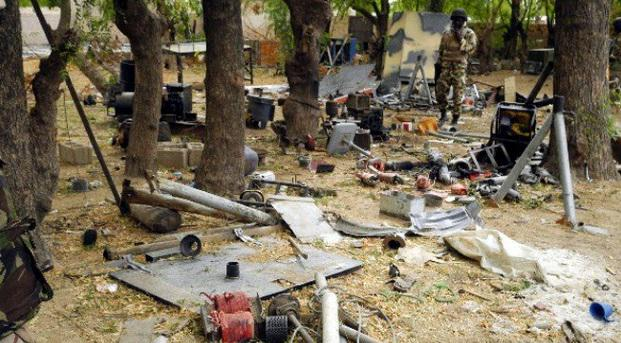By Olusegun Emmanuel, Abuja.
In a bid to reduce the current negative impact of medical tourism on the image and economy of Nigeria and her healthcare system, the National Conference has set strict procedures that must be observed by public officers seeking medical treatment outside Nigeria.
The Conference on Wednesday said seeking medical treatment abroad has resulted in immense capital flight and drain on Nigeria’s economy. It cited abuse of existing processes for screening of referrals for foreign medical treatment as one of the reasons.
Consequently, it resolved that henceforth, there should be restriction of government sponsorship of public officers for foreign medical care; and that unless for exceptional cases that require referral abroad, all public officers should mandatory utilize local health facilities.
These exceptional cases, it said, must be screened by a medical board made up of appropriate medical and healthcare professionals.
In addition, the recommendations of the board should be subject to the approval of the Minister of Health who is the chief medical adviser to the Federal Government, except where such exceptional cases are serious emergencies, in which instant approval may be given.
Conference however expressed the need for improvement in the quality of healthcare services in Nigeria; a deliberate effort to refocus the attitude of healthcare workers to patients in Nigeria; and improved political commitment to health by political office holders.
These resolutions were arrived at after heated debates on the report of the Committee on the Social Sector presented by the Committee Chairman, Iyom Josephine Anenih, supported by the deputy chairman, Professor Ruqayyatu Ahmed Rufai, the former Minister of Education.
It was also resolved that free-healthcare be established for children aged 0-5 years, senior citizens from the age of 65 years, persons living with disability or the physically challenged persons, free maternal services and free school health programmes.
After another round of heated debate by the delegates, Conference resolved that government and owners of mission/private schools should dialogue to facilitate the handover of all mission and private schools to their original owners.
In returning the schools, it was agreed that owners must ensure that they are affordable and able to serve wider variety of the public as it were in the original concept of the mission schools.
It recommended that there should be regulation of fees charged by the schools; the schools should provide assistance to the local community through scholarships and other services; and that children from other denominations should not be marginalized in the admission process.
Conference agreed that staff of such schools should have the option of remaining with the institution or being absorbed into government service in the case of the return of the mission and private schools to their original owners.
Still on schools, it was unanimously decided that government should convert all Almajiri schools to normal schools and integrate Quranic education curriculum to absorb the millions of out of school children.
Government was also asked to provide free basic education with free uniforms, books and midday meals for all children from primary one to junior secondary three.
It was also resolved that government should build additional Almajiri Schools to bring them up to 400 as originally planned while a 10 year plan of sustained implementation should be put in place with a view to providing access to all children.
On pension, Conference said the 2004 Pension Act should be amended so that payment of pension to beneficiaries would continue throughout their lifetime instead of the current practice where payment is only made to people between 15 and 18 years post-retirement.
Delegates agreed on the urgent need to amend the 2004 Pension Act to include a provision to hold the pension commission responsible and also prescribe penalties.
It was accepted that salary reviews should be reflected in calculating benefits across the board, particularly in reference to long-time retirees; salary increases should automatically affect retirees in both the old and new pension systems.
To ensure full coverage of citizens, Conference said pension fund administrators and the national pension commission should be obliged to begin a comprehensive programme of registering the informal sector workers under the 2004 Pensions Act.
Conference also unanimously decided that a social security policy be put in practice to cater for the well being of the elderly in addition to the pension policy.
Proceedings at the Conference however came to a halt for about 15 minutes as female delegates and some male delegates took the floor to protest attempts by other delegates to vote against the application of the affirmative action demanding that 35% of elective offices at all levels be given reserved for women.
As soon as delegates voted to reduce the percentage from 35% to 30%, all the women in the hall including some men stood up, started singing and threatened a walk-out if the decision was not reversed.
When the hall was eventually called to order, some of the male delegates including former Speaker of the House of Representatives, Ghali Umar Na’Abba, spoke in favour of 35%. They stated that the matter was already an existing government policy.
At this point, it was unanimously decided that since the practice was already in existence and on-going, it should be allowed to remain. Instantly, some female delegates started asking for increase to 40%.
Conference also decided that the Federal Government should put into effective use, the National Policy on Women adopted in 2004 which was replaced with the National Gender Policy in 2006.
Government was also asked to draft for passage and implementation, a Bill on the Abolition of all Forms of Discrimination against Women in Nigeria to address the issue of discrimination and violence against women and maltreatment of widows
Delegates adopted a recommendation that government should legislate to prohibit installation of telecommunication mast in residential neighbourhoods and to prohibit other practices that negatively impact on health including female genital mutilation.













